Technical Advisory Panel
The Technical Advisory Panel (TAP) provides technical advice to the Pandemic Fund's Governing Board. The TAP supports the Pandemic Fund with its goal of financing projects and activities that help strengthen capacity building and implementation of pandemic prevention, preparedness, and response (PPR) under International Health Regulations (IHR) (2005) and other internationally endorsed legal frameworks, consistent with a One Health approach.
The key functions of TAP are to:
- Ensure that the Governing Board is kept apprised of the latest knowledge and developments related to PPR, including the status of PPR capacity at country, regional and global levels, emerging lessons and priorities, and significant developments in the areas of broader PPR governance and oversight.
- Advise the Governing Board on funding priorities and critical gaps in pandemic PPR, as well as on funding allocation decisions, by providing analysis and evidence-based recommendations, based on an evaluation of individual funding proposals submitted to the Pandemic Fund through the Call for Proposals process.
The TAP comprises of a core group of 21 multidisciplinary experts and is chaired by Dr. Chikwe Ihekweazu, Assistant Director-General, WHO. Dr. Joy St. John as Vice-Chair. TAP members bring a diverse range of technical and financial expertise relevant to the Pandemic Fund-supported projects and activities. The experts reflect the Pandemic Fund's commitment to achieving an adequate mix of technical expertise, geographical representation, and gender balance.
TAP Leadership and TAP members are subject to the Pandemic Fund’s Conflict of Interest Framework and policies as set forth in the Operations Manual. TAP experts were selected through a competitive process, serve for a period of 2 years, and are eligible for reappointment for a maximum of two consecutive terms. The TAP’s roles and responsibilities are set out in paragraph 21 of the Governance Framework and in the Terms and Reference for the TAP. For further details, please see the Terms of Reference for the TAP.
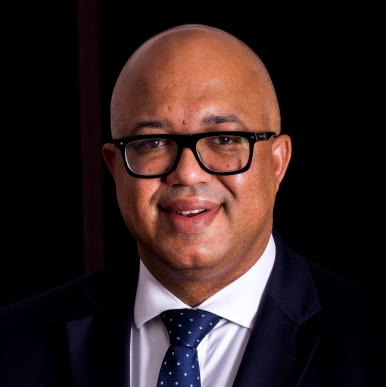
Dr Chikwe Andreas IHEKWEAZU, MBBS, DCH&TM, MPH, EPIET, FFPH
Dr Chikwe Ihekweazu is Assistant Director-General at the Health Emergencies Programme of the World Health Organization.
Prior to this, Dr Ihekweazu was the first Director General of the Nigeria Centre for Disease Control (NCDC) and led the agency between July 2016 and October 2021, where he built up this national public health agency from a small unit to a leading public health agency in Africa, working closely with the Africa Centres for Disease Control. He acted as Interim Director of the West Africa Regional Centre for Surveillance and Disease Control through 2017.
Dr Ihekweazu trained as an infectious disease epidemiologist and has worked in leadership positions in several national public health agencies, including NCDC, the South African National Institute for Communicable Diseases (NICD), the UK's Health Protection Agency (HPA), and Germany’s Robert Koch Institute (RKI). Dr Ihekweazu led several short-term engagements for WHO, mainly to build surveillance systems and in response to major infectious disease outbreaks around the world. He was part of the first WHO COVID-19 international mission to China, in February 2020.
Dr Ihekweazu is a graduate of the College of Medicine, University of Nigeria and has a Master in Public Health (MPH) from the Heinrich-Heine University, Dusseldorf, Germany. In 2003, he was awarded a Fellowship for the European Programme for Intervention Epidemiology Training (EPIET) and subsequently completed his Public Health specialisation in the UK (FFPH). He has over 150 publications in medical peer review journals mostly focused on the epidemiology of infectious diseases.
He is the recipient of an Honorary Doctor of Science (DSc) awarded by the Liverpool School of Tropical Medicine, UK, the National Productivity Order of Merit (NPOM) of the Order of the Niger (OON) awarded by the President of the Federal Republic of Nigeria, for his service to Nigeria.

Dr Joy St John’s 30 year career in Public Health has allowed her to give service at the national, regional and global levels.
She rose through the ranks of Public Health in Barbados to become the first Barbadian to be Chief Medical Officer of her country, from 2005 to 2017.
She has served as the Director and most recently in June 2024, completed 5 years as the first female Executive Director of the Caribbean Public Health Agency.
She was the first Caribbean person to Chair the Executive Board of WHO and also became the first Barbadian Assistant Director General at WHO with responsibility for Climate and Other Determinants of Health in 2017 .
She has focused on overall Health Systems Strengthening at each stage of her career. Her firm but fair leadership has had particular focus on mitigating the harmful effects of Climate Change on Health, the fight against Non Communicable Diseases, and protecting Caribbean Regional Health Security.
Dr St John was fortunate to lead the CARICOM regional public health response to the COVID-19 pandemic. She therefore brings a wealth of practical experience in using Health Diplomacy in working with Heads of Government, Health Leadership, International Development Partners and multiple sectors in Pandemic Preparedness and Response.
She is currently Vice Chair of the Technical Advisory Panel of the Pandemic Fund Board.
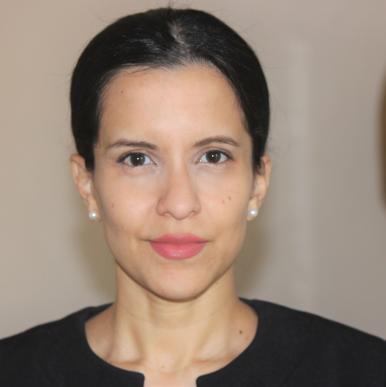
Dr Aalisha Sahukhan is a medical doctor specialising in public health and infectious disease epidemiology. Dr Sahukhan is the founding Head of Health Protection at the Fiji Ministry of Health and Medical Services, where she leads the Fiji Centre for Disease Control (Fiji CDC), the Environmental Health Unit, and the Health Emergencies and Climate Change department.
Dr Sahukhan has led responses to epidemics of infectious disease including meningococcal C, measles, and leptospirosis, and is a health leadership team member, a national spokesperson, and technical lead, for Fiji’s response to the COVID-19 pandemic.
Dr Sahukhan is a member of the International Health Regulations (2005) Roster of Experts as an expert in public health, including infectious disease epidemiology and emergency management. In 2022, Dr Sahukhan was appointed by the WHO Director General as a member of the IHR Review Committee regarding amendments to the International Health Regulations (2005). She was also recently appointed as a member of the the first Review Committees for Standing Recommendations under the IHR (2005) for COVID-19 and mpox respectively.
Dr Sahukhan is Fiji’s chief negotiator to the WHO Intergovernmental Negotiating Body (INB) to draft and negotiate a convention, agreement or other international instrument to strengthen pandemic prevention, preparedness and response, and the Working Group on amendments to the International Health Regulations (2005) (WGIHR).
Dr Sahukhan is also a member of the Technical Advisory Panel of the Pandemic Fund, hosted at the World Bank.
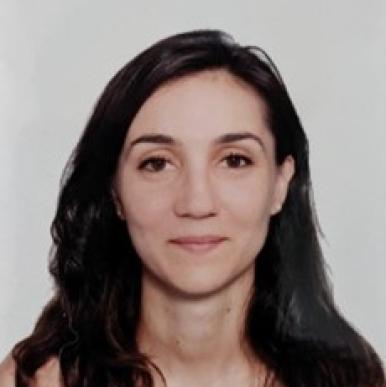
Dr. Alice Abou-Nader is a Senior Country Manager in Gavi’s Middle-Income Countries (MICS) team supporting the implementation of grants strengthening national immunization programs and the introduction of new vaccines (rotavirus, PCV and HPV) across Gavi-graduating countries. Prior to joining Gavi’s MICS team, she facilitated and coordinated the distribution of over 205 million doses of COVID-19 vaccines across 16 Southeast Asian and Western Pacific countries while part of Gavi’s COVAX Country Engagement Team.
Dr. Abou-Nader has experience in engaging with Ministries of Health, Ministries of Finance, and National Parliaments to move forward sustainable immunization financing through data analysis, strengthening government fiscal oversight, and immunization-related legislation while working for Sabin Vaccine Institute’s Sustainable Immunization Financing (SVI-SIF) team. Her responsibilities included in-country capacity building for financial data analysis for evidence-based decision making across 22 countries. Following her tenure at SVI-SIF, she served as a Senior Program Officer at John Snow Inc, Maternal Child Survival Programme (JSI-MCSP) where she was responsible for designing, monitoring, and managing the core immunizations technical support to country’s with immunization backsliding and monitored the program learning agenda to generate publications for evidence-based policies.
She has over a decade working on supporting national immunization programs across different country settings and has been recently appointed as an Honorary Assistant Professor by Hong Kong University’s Department of Public Health to impart her practical experience to graduate students.
Prior to joining Gavi, Dr. Abou-Nader obtained her PhD in Medical Sciences from Chinese University of Hong Kong having researched the impact of vaccine financing and procurement mechanisms on new vaccine introductions and access. She also holds an MPH from the Erasmus Mundus EuroPubhealth Program and a BSc in Biotechnology and International Studies from the Worcester Polytechnic Institute.
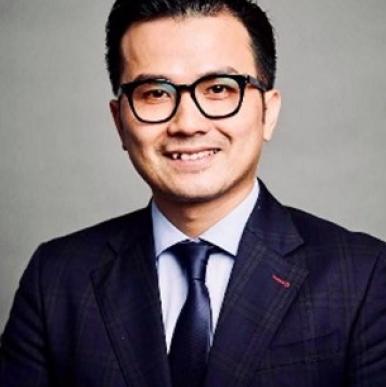
Dr. Bach Tran is a Health Economist, Professor at Vietnam National University, Hanoi, and Adjunct Professor at Johns Hopkins University. He specializes in decision-analytic modeling to guide the development and assessment of health technologies and policies. With extensive experience consulting for United Nations agencies, international organizations, and governments across Asia, his work focuses on identifying cost-effective interventions, evaluating health services and innovations, and strengthening health systems. His efforts address critical global health challenges, including HIV/AIDS, substance use, mental health, and pandemic preparedness and response.
Dr. Tran has received numerous international research awards, including the 2025 CUGH’s Velji Faculty Leader in Global Health Innovation Award, the 2024 IBTN LMIC Investigator Award, the 2023 ISPOR LMIC Research Excellence Award, the Hopkins Center for AIDS Research’s International Research Award, and was a runner-up for the 2022 APEC Research Prize on Healthy Women, Healthy Economies.
Dr. Tran earned his PhD in Health Services and Policy from the University of Alberta, Canada (2011), completed a NIH/IAS postdoctoral fellowship at Johns Hopkins University, and obtained a Habilitation-to-Direct Research (HDR) from Aix-Marseille University, France. He also holds an MSc in Finance and Management (University of Toulon), a BA in Law, and a BS in Public Health. He is an alumnus of the InterAcademy Medical Panel’s Young Physician Leaders program (2013) and served as an Executive Committee Member of the Global Young Academy (2018–2019). Since 2015, he has co-chaired the Global Health Innovations Network (GHIN), which fosters innovations, research, and publications for sustainable health and development in LMICs. As Vice President of the Vietnam Young Physician Association, Dr. Tran has been a pioneer in promoting research and evidence-based medicine within the healthcare system.
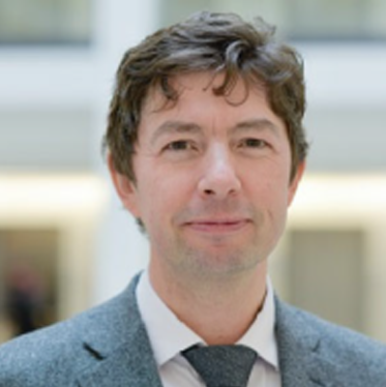
Christian Drosten studied medicine at Johann Wolfgang Goethe University Frankfurt. He received his doctoral degree in 2003 with a thesis on establishment of high throughput blood donor screening for HBV and HIV-1 in transfusion medicine. From June 2000, Drosten worked at Bernhard Nocht Institute for Tropical Medicine (BNITM) in Hamburg. His laboratory group “Molecular Diagnostics” focused on virus discovery and molecular diagnostics in tropical viral diseases. From 2007, Drosten founded and headed the Institute of Virology at University of Bonn Medical Center. In 2017, he and his team moved to Charité in Berlin, where he is currently the Director of the Institute of Virology and co-director of the Centre for Global Health (together with Professor Beate Kampmann). He was a member of the German Ministry of Health’s International Advisory Board on Global Health from 2017-2019. Drosten codiscovered the SARS coronavirus (SARS-CoV), for which he also developed one of the first diagnostic tests in 2003. He contributed studies on all aspects of disease ecology and natural history of MERS (Middle East respiratory syndrome) and recently focuses on SARS-CoV-2 in addition. As early as January 2020 he presented the first diagnostic workflow for COVID-19 diagnostics that was initially adapted in many countries before the wider availability of commercial tests. During the ongoing pandemic, he has been consulting German federal and state authorities and was appointed to the European Commission's advisory panel on Covid-19.
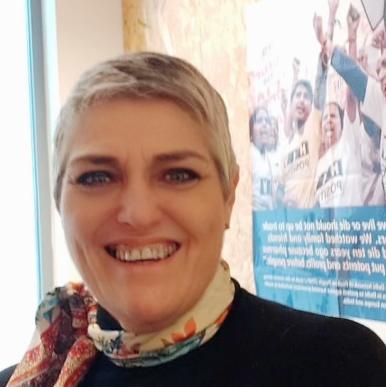
Dr Daniela Garone is a Medical doctor from Argentina, specialized in infectious diseases, internal medicine and clinical and pharmacological research. Daniela has more than 25 years working in the clinical field and 16 years of experience managing medical programs in resource limited settings working with international Organization in Zimbabwe, Mozambique, India, Venezuela, Brazil, Malawi, South Sudan and South Africa. She has more than 20 years of experience working in clinical, pharmacological and operational research as study coordinator as well as principal investigator. She has also always sought to integrate operational research into the clinical service delivery elements of her work in resource-limited settings to further extend the impact and efficiency of health services.
Dr Garone is a serving HIV Expert member in the Technical Review Panel (TRP) at The Global Fund, she has participated in different TRP working groups including the GF Strategic Initiatives. She is also a reviewer of the JAIDS-AIDS,BMC-Lancet-TB union and others.
Dr Garone is a member of the ICG for Ebola, Meningitis, Cholera and Yellow Fever, at the GFTCC SCOM, GOARN SCOM, Humanitarian Buffer as well as different working groups for disease elimination.
Dr Garone is always looking to acquire the necessary skills and qualification to perform her best in her responsibility toward high quality outcomes that can improve patients health and well-being.

Dr. Eamon Raith is a medical doctor specialising in Intensive Care Medicine. He completed his clinical ICU training in Australia and the United Kingdom, developing expertise in critical care medicine with a focus on sepsis, immune regulation, and global health, and completed a PhD in Medicine at The University of Adelaide.
Dr. Raith’s research emphasizes experimental and translational critical care medicine, particularly in sepsis, immune dysregulation, and biosecurity, pandemic preparedness and response. This research combines pre-clinical models, multi-omics technologies, population studies, and clinical trials to better understand and address the challenges of critical illness.
Dr. Raith played a key role in the COVID-19 pandemic response in both the United Kingdom and Australia. While working in the UK, he was the Clinical Lead for COVID-19 Response at a quaternary London hospital, contributing to frontline care, emergency response research, and adapting protocols to manage critically ill COVID-19 patients. Upon returning to Australia, he continued to play a vital role in pandemic response, focusing on improving critical care delivery, resource management, and preparedness in South Australia. He is currently leading research into immune dysregulation in sepsis and critical illness and is committed to advancing global efforts in pandemic readiness and response. Dr. Raith’s work includes strategies to detect and manage high-consequence infectious diseases and improve clinical outcomes in resource-limited settings, with a focus on the Asia-Pacific and Indo-Pacific regions.
Dr Raith is an ICU Consultant in Queensland Health, and holds academic appointments at The University of Queensland, The University of Adelaide, Monash University, James Cook University and University College London. He is the Research Lead for the Australian and New Zealand Intensive Care Society (ANZICS) Global Intensive Care Initiative (GICI), and member of The Australian Institute of Tropical Health and Medicine and The Tropical Australian Academic Health Centre.
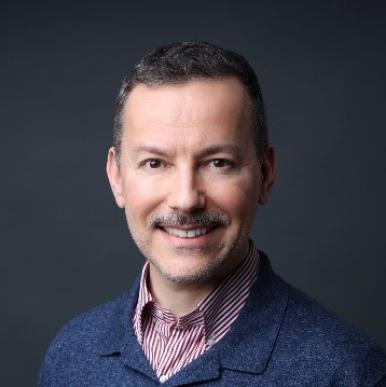
Dr. Frank Konings is a virologist and global health expert with over 15 years of experience, specializing in infectious disease surveillance, pandemic preparedness, and outbreak response at national, regional, and global levels.
He earned a PhD in Microbiology (Virology) from New York University in 2006, focusing on HIV-1 genomic evolution in Cameroon. During his career, he has worked extensively across Africa, Asia, and the Middle East, supporting national health authorities in managing major infectious disease threats, including MERS, COVID-19, influenza, Ebola, and antimicrobial resistance.
Dr. Konings played a key role in global pandemic response efforts, serving as a member of the WHO HQ COVID-19 Incident Management Support Team and as Coordinator of the Virus Evolution Working Group. Before transitioning to WHO Headquarters, he held leadership roles at WHO regional offices in the Western Pacific (WPRO, Manila) and Eastern Mediterranean (EMRO, Cairo). In addition to leading operational outbreak responses, he has been actively involved in normative work, including the development and implementation of evidence-based national laboratory policies and strategies in Member States.
He has played a key role in nearly all aspects of International Health Regulations (IHR)-related work, with extensive involvement in the Monitoring and Evaluation Framework. As a member of the WPRO IHR Joint External Evaluation (JEE) Coordination and Mission Implementation Team, he received the WHO Director General's Rewards for Excellence (2017).
Currently, Dr. Konings is a Senior Advisor to international organizations, academic institutions and foundations, including the International Vaccine Institute, World Bank, The University of Hong Kong and the RIGHT Foundation, focusing on global health security and pandemic preparedness.
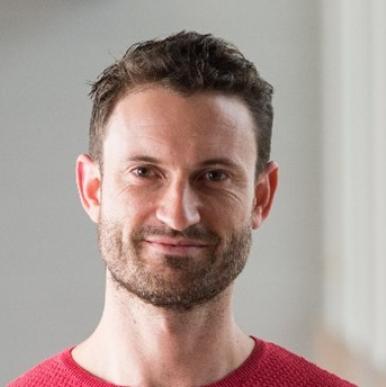
Gavin is a health economist and researcher in public health, focusing on advancing health globally by supporting countries in using evidence for decision-making. He has experience in health financing, economic evaluation, benefits package design, health technology assessment, and monitoring and evaluation. He has a particular focus on HIV/AIDS, immunisation, and sexual and reproductive health and rights (SRHR). His research work spans multiple countries, primarily focusing on Africa and Central Asia, with experience working with a range of organisations and partners, including The Global Fund, Gavi, UNAIDS, UNICEF, UNDP, The World Bank, PEPFAR, and Sida.
Gavin has played a key role in establishing decision-making systems across countries, including Health Technology Assessment and related advisory committees and technical working groups, while also working to strengthen capacity in this area. He has also been involved in the development of guidelines and frameworks in this area.
He currently holds a scientific research post at Radboud University Medical Centre, Global Health Priorities, focusing on benefits package design and Evidence Deliberative Processes. With Radboudumc, he is currently leading the design of the Standard Guaranteed Benefits Package (SGBP) for Kyrgyzstan.
Gavin serves as a member of the Gavi, The Vaccine Alliance, Independent Review Committee, providing critical evaluations of country funding applications to advance immunization efforts worldwide.
Gavin also regularly collaborates with the Health Economics and HIV/AIDS Research Division (HEARD) at the University of KwaZulu-Natal, where he is an alumnus.
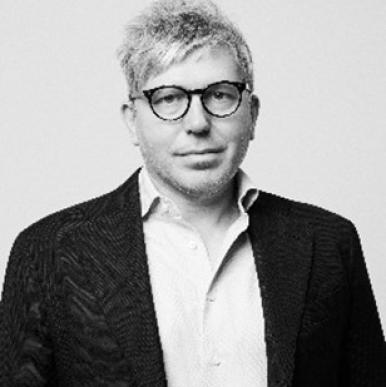
Jonathan is based at the European Centre for Disease Prevention and Control (ECDC), where he is a Group Lead for Partnerships and Capacity Building and a Principal Expert in Emergency Preparedness and Response. Jonathan is a multidisciplinary public health specialist who coordinates preparedness work at ECDC topics such as pandemic preparedness, non-pharmaceutical interventions, after-action reviews, risk prioritisation, and climate change adaptation. He also leads the implementation of projects designed to strengthen health security and foster regional dialogue across European Neighbourhood Policy countries. During the COVID-19 pandemic, Jonathan was strategic analyst to the ECDC response. In 2023, he was a member of the WHO Guideline Development Group on Public Health and Social Measures for Mitigating the Risk and Impact of Epidemic and Pandemic Influenza. With ECDC since 2007, Jonathan has led and/or contributed to numerous emergency responses, country assessments, simulation exercises and after-action reviews in varying national and international settings, and he has also conducted extensive epidemiology research into the environmental and social determinants of infectious disease with a particular emphasis on climate change. Prior to joining ECDC, Jonathan worked in academia and in the biotechnology industry. Jonathan has a BSc. in microbiology and immunology from McGill University and a PhD from the School of Social and Political Sciences, University of Edinburgh.
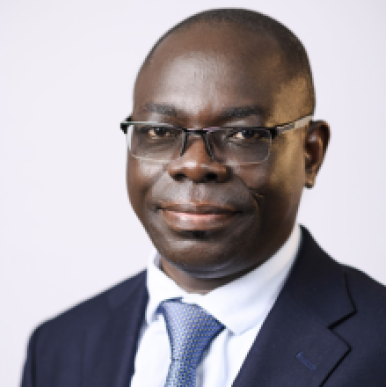
Justice Nonvignon is a Health Economist and public health researcher with extensive experience in teaching and mentoring students. His main areas of research experience include health financing, economic and impact evaluation of population, health and nutrition programmes and health financing. His research work spans multiple countries in Africa.
Justice currently serves as the Acting Head of the Health Economics Programme (HEP) at the Africa Centres for Disease Control and Prevention (Africa CDC), a specialized technical agency of the African Union headquartered in Addis Ababa, Ethiopia.
Justice is also Professor of Health Economics at the School of Public Health, University of Ghana where he has worked since 2009. He has a long history of leveraging research and health economics evidence to strengthen public health programs, including in over a dozen countries in Africa.
He has consulted for major global health players including WHO, UNICEF, the World Bank, and others. He has served on over 35 expert committees, including Member of WHO’s Strategic and Technical Advisory Group for Infectious Hazards with Pandemic and Epidemic Potential (STAG-IH), Member of the Gavi Evaluation Advisory Committee, Co-Chair of the Ministry of Health Ghana’s Health Technology Assessment Technical Working Group, and member of the advisory board of the Global Health Economic Centre at the London School of Hygiene and Tropical Medicine. He recently ended a three-year term as Chair of the Global Evaluation and Monitoring Network for Health, a network of 11 universities in 9 countries across Africa, Asia, Latin America and the United States of America leading monitoring and evaluation capacity strengthening and technical assistance.
Justice was a founding member of the African Health Economics and Policy Association, and has served in the scientific committee of the International Health Economics Association’s biennial World Congress on Health Economics since 2013. He is an Alumnus of University of Ghana (PhD Public Health), University of Dar es Salaam, Tanzania (MSc Economics) and University of Cape Coast, Ghana (BA Hons Economics).
He is also an Alumnus of African Economic Research Consortium’s Collaborative Master of Arts Programme.
He is a past postdoctoral fellow at African Population and Health Research Centre, visiting scholar at Duke Global Health Institute, Coimbra scholar at Aarhus University, Denmark and Adjunct Faculty at Public Health Foundation of India and Strathclyde Business School, Scotland. Justice has more than 80 peer reviewed articles aside book chapters.
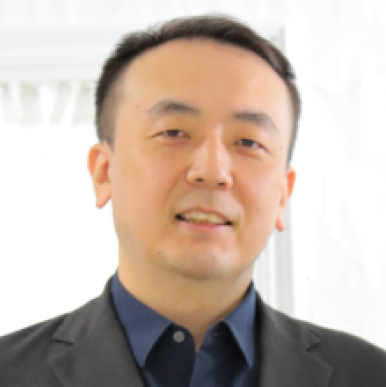
Dr. Kenichi KOMADA, specialist of acute medicine and epidemiology, has about 20 years’ experiences providing technical, programmatic and management support in infectious diseases to several countries in the Western Pacific and African Regions and elsewhere.
Positions held include Chief advisor, JICA HIV/AIDS project in Zambia, Deputy Director of the International Affairs Division of Ministry of Health, Labour and Welfare, Japan, clinical emergency doctor in St. Luke’s International hospital in Japan.
He participated in disaster relief after devastated earthquakes in Pakistan and Japan, and emergency support for border measures by Japanese government related to the pandemics of H1N1 and COVID-19.
He conducted infectious diseases related researches in the Western Pacific and African Regions including Lao PDR, Viet Nam, and Zambia. He has also contributed to regional and global meetings as infectious disease control expert.
His professional interests include program implementation and monitoring and evaluation for infectious disease control in resource limited settings.
Professor LEO Yee Sin, an adult Infectious Disease specialist, has led her team through multiple outbreaks in Singapore. With her experience and expertise, she is frequently called upon as advisor and conference speaker by local and international organisations. She serves in multiple World Health Organization workgroups on outbreak management, and as an international expert in scientific and research bodies such as the WHO-STAG IH. She is heavily involved in research and teaching and has published more than 400 peer-reviewed scientific papers.
For her outstanding work, Professor Leo has won many prestigious awards and was named in BBC's 100 women list in 2020. She was inducted into the highly acclaimed Singapore Women's Hall of Fame in 2022.
In 2022, Professor Leo was conferred the title of Knight of the French Order of the Legion of Honour, by France's Ambassador to Singapore Marc Abensour on behalf of the President of the French Republic.
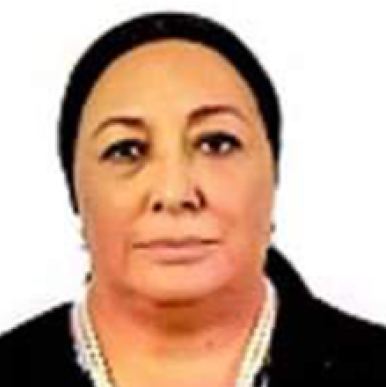
Professor Dr. Maha El Rabbat, Egyptian Ex- Minister of Health and Population is primarily a professor of Public Health. She has served the Government of Egypt and is continually serving to support regional health systems strengthening efforts and supporting the scientific development of her University, the Cairo University, where Prof. El Rabbat has been granted her early medical under/post graduate degrees prior to her equally successful attainment of several international certification/accreditation.
She has held several high-level academic and leadership positions with more than 40 years of strategic leadership, policy and advocacy and operational expertise through her technical positions and close work with national, regional, and international organizations as an expert in public health and lately with the COVID 19 pandemic as WHO/DG Special Envoy for COVID 19. She is a member of the AU Commission on Africa’s COVID-19 Response Strategy and a member of the Global Preparedness and Monitoring Board.
Professor El Rabbat has extensive experience in conducting system-wide assessments and reform in response to emerging needs and supported strengthening of service delivery at different levels especially PHC . She has worked on strengthening health systems and responses to emerging needs and human development in the region, particularly in middle and lower income countries, through evidence-based policy, knowledge exchange and networking.
She has been advocating for better health system governance and management, promoting public health, capacity building in public health functions, universal health coverage, primary health care and preparedness and addressing emergencies, communicable, non communicable and endemic diseases as core for improving health sector response and promoting right to health for all with emphasis on vulnerable, needy populations and in fragile settings.
Dr. El Rabbat serves as a member in several health committees and advisory boards such as WHO/EMRO regional advisory committee; WHO Expert Reference Group on WHO Impact Framework, International Academy of Public Health (IAPH)/Jordan; Arab Public Health Association; Pandemic preparedness platform for health and emerging infections’ response(PANTHER). Her membership has allowed her to be closely involved in observing and shaping global, regional and national health systems policies.

Marisa Peyre (Eng. , Ph.D., HDR) is an epidemiologist specialized in the evaluation of surveillance and control programs in animal health and One Health. She is currently the deputy director of ASTRE, the integrated health research unit in CIRAD. She has been working for CIRAD (French Agricultural Research Centre for International Development) since 2006 where she carries out researches in the field of evaluative epidemiology. She graduated in 1998 in biotechnology engineering (Bordeaux, France), obtained her PhD in 2005 in Immunology (London, UK), and her habilitation to direct researches (HDR) in the field of health evaluation in 2019. She has worked for the past 15 years on the evaluation of animal and zoonotic diseases surveillance and control both in developed and developing countries (especially in Africa and Asia), on emerging zoonotic risks such as animal Influenza, Ebola and MersCov and on the strengthening of public-private partnership. She provides expertise for international organizations such as WOAH, FAO, World Bank, Galvmed. Her key expertise is on the design and evaluation of health systems (surveillance and control) including wildlife and integrated One Health surveillance systems; animal health economics; participatory epidemiology and public-private partnerships. She is a co-founder of the PREZODE initiative (Preventing Zoonotic Disease Emergence). She drives and supports an international change in paradigm towards increased prevention of health risks using a bottom-up approach. Towards involving communities and the local actors at the front line with the risks in the co-design of the health strategies they will implement. Along with the engagement of the national authorities to ensure that those relevant solutions are sustainable and impactful, being integrated into national policies and funded by the countries.

Dr. Amour is a physician scientist at the Muhimbili University of Health, and Allied Sciences (MUHAS), Tanzania. She graduated from MUHAS and holds a Master degree in public health from the Dartmouth Institute for Health Policy and Clinical Practice in USA. Currently, Dr. Amour is a postdoctoral fellow at the Harvard School of Public Health. Her professional interests are on infectious diseases, particularly COVID-19, TB/HIV, and adolescents’ health.
Dr. Amour has been actively involved in TB and HIV research among adolescents in Tanzania. She is currently the principal investigator in a research study examining TB infection by serial Interferon gamma release assay testing among adolescents and their household contacts. Previously, she served as a co-investigator in a TB vaccine clinical trial for prevention of tuberculosis infection among adolescents in Tanzania. She then served as member of the National Immunization Technical Advisory Group (NITAG) in Tanzania. Dr. Amour has also conducted epidemiological studies among adolescents living with HIV. For the past two years, she has been consulting in enhancing country analytical capacity and data use in HIV, TB, and Malaria programs under the Global Fund support.
Ever since the COVID-19 pandemic, she has been involved in advocacy and educating the public through different platforms on COVID-19 and COVID-19 vaccines. Recently, she was a principal investigator in a nationwide study examining the acceptance of COVID-19 vaccine among health care workers and communities in Tanzania. For her work, Dr Amour was nominated in the 2021 cohort of young physician leaders.
Dr. Amour is a member of the Medical Women Association of Tanzania (MEWATA) and has been actively participating in organizing nationwide mass screening campaigns of breast and cervical cancer since 2012. Dr. Amour has also been involved in strengthening the capacity of civil society organisations (CSOs) dealing with entrepreneurship, climate change, women rights, and gender-based violence prevention in Tanzania.
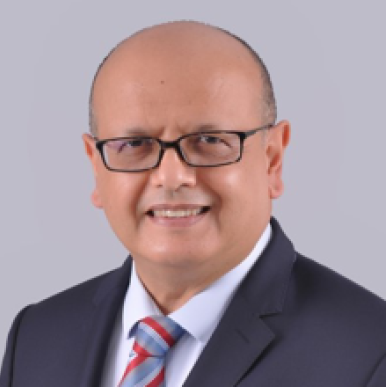
Dr Moussif, Chief Medical Officer at Casablanca International Airport and National Coordinator of Morocco’s points of entry program, is a fellow and graduate of the Centre on Global Health Security at Chatham House in London.
He holds a master’s degree in public health, a Diploma in Epidemiology and Biostatistics, and an MBA in Health Management. Additionally, he has a Diploma in Aviation Medicine from the European School of Aviation Medicine in Frankfurt and a Diploma in Travel Health from the Liverpool School of Tropical Medicine.
Since 2003, he has been involved internationally in the International Health Regulations (IHR). He has conducted over forty IHR assessment missions abroad, including thirteen Joint External Evaluations (JEEs) across the six regions of the WHO.
He is a member of the U.S. Department of State’s “Global Health Challenges International Visitor Leadership” program.
He is a member of the WHO IHR Review Committee on the IHR functioning during COVID-19 and of the WHO ITH GDG (International Travel and Health Guidelines Development Group).
The WHO has appointed Dr. Moussif to the WHO Universal Health and Preparedness Review Technical Advisory Group (WHO UHPR TAG) and the WHO Advisory Committee on Variola Virus Research (WHO ACVVR). He also serves on the Africa CDC COVID-19 Steering Committee and as a Technical Advisor for ICAO.
In July 2023, he was appointed by the DG of WHO as a member of the IHR Review Committee regarding Standing Recommendations for COVID-19 and a member of the IHR Review Committee regarding Standing Recommendations for mpox.
Dr Moussif has been a WHO IHR Roster of Experts member since 2017.
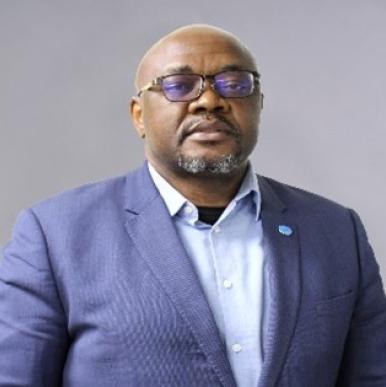
Nicaise Ndembi, Ph.D., is the Deputy Director General, Regional Director of the IVI Africa Regional Office, overseeing IVI’s operational, scientific, and partnership activities in the Africa region, including the Africa Regional Office in Kigali, Rwanda and a Country Office in Nairobi, Kenya. He is based in Kigali.
Dr. Ndembi is also an Associate Professor at the Institute of Human Virology, University of Maryland School of Medicine as well as a Research Professor at the Kanazawa University School of Medicine, Department of Viral Infection and International Public Health, where he completed his doctorate in molecular virology.
Prior to joining IVI in 2025, Dr. Ndembi was the Principal Advisor to the Africa Centres for Disease Control and Prevention (CDC)’s Director General, where he established the Partnerships for African Vaccine Manufacturing, creating a framework for regional vaccine manufacturing and self-reliance. He additional held the position of Deputy Incident Manager Mpox – Marburg Continental Preparedness and Response Plan for Africa.
Dr. Ndembi has authored and co-authored over 300 peer-reviewed papers and chapters in professional journals.
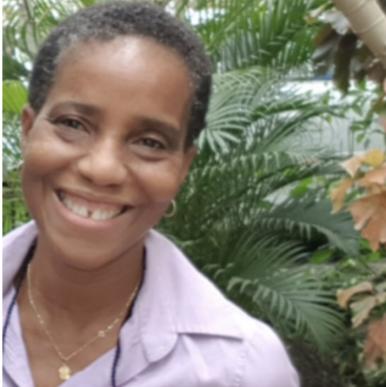
Dr. Olusola Aruna is a medically qualified Fellow of the United Kingdom Faculty of Public Health (FPH). Sola qualified as a doctor in 1984 from the University of Ife, Nigeria. She gained her Masters in Public Health (MPH) with distinction from the University of Leeds in 1996 as a British Chevening Scholar, and holds the Diploma in Child Health (DCH) of the Royal College of Physicians and Surgeons of Glasgow. Sola also holds a postgraduate teaching certificate from the Centre for Medical Education of the University of Bristol. Prior to her specialist Public Health training in the UK, Sola had pursued a clinical career mainly in the field of Child Health and Paediatrics in Nigeria as well as in the Commonwealth of Dominica (West Indies) where she worked as a District Medical Officer. She also worked in a multi-stakeholder environment at directorate level in the Nigerian health sector at the national level.
Sola was appointed in 2007, as Consultant in Public Health Medicine within the English National Health Service (NHS), where she worked until 2013, following which she worked in the same role with Gloucestershire County Council until 2017. From 2018 to 2025, she led the implementation of the UK Health Security Agency’s International Health Regulations (IHR) Strengthening Programme as Country Lead in Nigeria, also covering the West African Region. She is a keen amateur gardener and loves to dance.
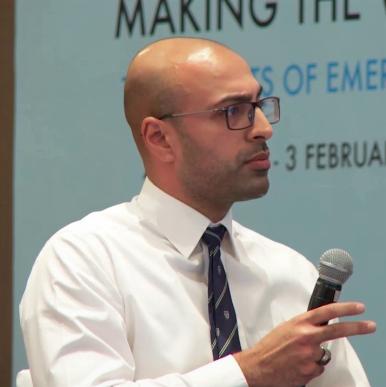
Osman Ahmed Dar is a fellow of the Royal College of Physicians (Edinburgh) and a fellow of the Faculty of Public Health (UK) specialized in public health medicine and communicable disease control. He has wide ranging international experience of health system strengthening, humanitarian response and global health security having lived and worked across Europe, Africa, the Middle East and South Asia.
Internationally, Osman is a Senior Advisor on Policy and Strategy in the Office of the Director General at the Africa Centres for Disease Control and Prevention where he is currently based. In addition, he is a working group co-chair for the One Health High Level Expert Panel (OHHLEP), where he advises WHO, WOAH, FAO and UNEP on the development of their global One Health strategies, including their joint activities on pandemic prevention, preparedness and response, the control of emerging zoonoses, and other health crises at the human-animal-environment interface.
In his role at the UK Health Security Agency (UKHSA), Osman is a senior medical consultant in global health with a broad portfolio of activities as a technical operational lead, educational supervisor and senior research academic publishing extensively across public health and related disciplines. He was the lead coordinating author for the 2023 Lancet Series on Global Health Security and One Health. At Chatham House, Osman is an Associate Fellow with the Global Health Programme. His primary focus is on supporting the institute’s One Health projects including multi-sectoral collaboration for the prevention and control of outbreaks of zoonotic diseases, emerging infections, food safety and antimicrobial resistance.
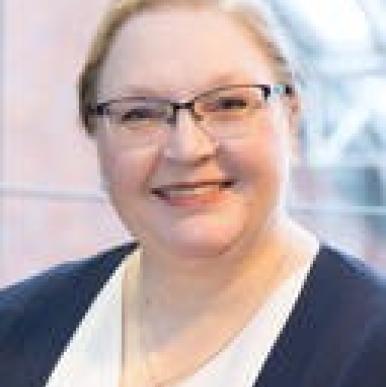
Ms Outi Kuivasniemi is Deputy Director for International Affairs at the Ministry of Social Affairs and Health in Finland. During her 25 year career at the Ministry, Ms Kuivasniemi’s focus has been on global and EU health and social policies and she is a senior expert in health security, global health governance and financing. Ms Kuivasniemi has accrued wide understanding of issues around global health and multilateral collaboration. Ms Kuivasniemi has served in a number of WHO, World Bank and EU Expert Working Groups, especially relating to global public goods, health security, financing, governance and non-communicable diseases.
Ms Kuivasniemi has been actively working on improving global health security and capacity building for country preparedness. She has been instrumental in developing international cross-sectoral collaboration in health security through the Global Health Security Agenda (GHSA) and the Alliance for Health Security Cooperation. She has been working to improve global equitable access to vaccines through Finland’s participation in WHO, CEPI (Vice Chair of Investors’ Council), International Vaccine Institute IVI (Member of Board of Trustees) and the European Union.
Ms Kuivasniemi holds a degree of Master in Political Sciences from the University of Åbo Akademi, Finland, where she graduated in 1995 with international law as her major. In 2016 she was decorated Knight of the Order of the White Rose of Finland for her services in public administration.
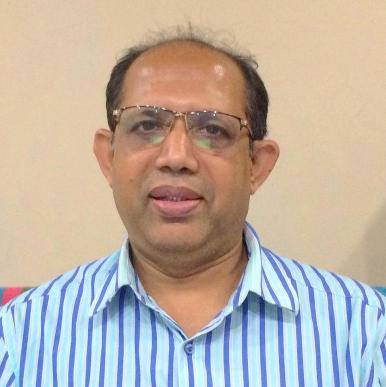
Paritosh is a veterinarian and a professor of microbiology and veterinary public health at the Chattogram Veterinary and Animal Sciences University (CVASU), Bangladesh.
As the animal health laboratory capacity building lead, he is also supporting the Fleming Fund Country Grant. He had experience working with FAO and the World Bank.
He worked as a former Dean, Faculty of Food Science and Technology, and Director, Poultry Research and Training Center, CVASU. He also served as the founder Director of the One Health Institute at CVASU. His work focuses on emerging zoonotic pathogens, and antimicrobial resistance. He was an awardee of International Conference on Emerging Infectious Diseases (ICEID) 2018 Leader, USA.
He is a member to the Advisory Board, Avian Pathology Journal, and also working as the top moderator of the Program for Monitoring Emerging Diseases South Asia Network (ProMEDSoAs). He was a member of the UKRI International Development Peer Review College.
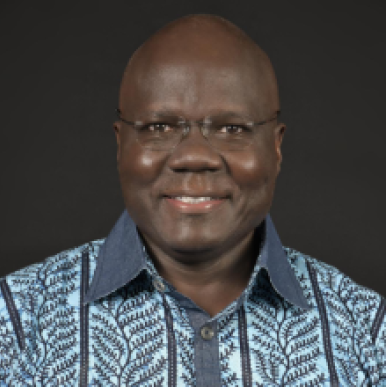
Patrick Osewe, MD, MPH, MBA
Senior Director – Regenesys Business School
Patrick Osewe is a leading global expert on public health and climate change and the Senior Director of the Regenesys Business School. He currently leads a regional effort to make education accessible and affordable for the majority of people and transform Africa digital and entrepreneurship landscape. Prior to joining Regenesys, he was the Director of Health of the Asian Development Bank (ADB) where he drove innovation on priority and emerging health issues in Asia and the Pacific focusing on the nexus of Universal Health Coverage, pandemic preparedness, education, social protection, climate change and finance. During the outbreak of COVID-19, he provided leadership and guidance in the implementation of ADB’s $20 billion commitment to respond to COVID-19 and $9 billion for Developing Member Countries to obtain and deploy COVID-19 vaccines. He was part of the technical team that established the ASEAN Center for Public Health Emergencies and Emerging Diseases.
Prior to his time at ADB, Patrick was a Global Lead for public health for the World Bank. In this role, he led a global effort to address a range of public health issues for World Bank member countries and was part of the technical team that established for the Africa Centers for Disease Control and Prevention
With more than 30 years of experience as a global leader in health, Patrick has previously worked as Senior Health Advisor for USAID and a Senior Epidemiologist for the U.S. Centers for Disease Control and Prevention where he developed a public health framework for Olympics Games. He has a proven track record of bringing countries and multiple sectors together¾including governments, development partners, and the private sector¾to transform health, education and social development sectors.
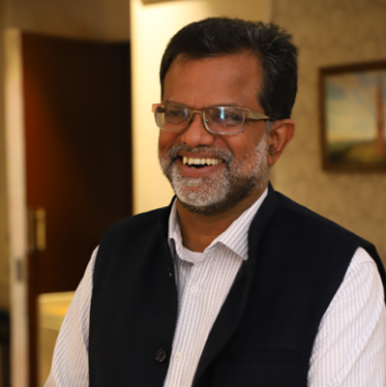
Rajeev Sadanandan is a health policy and systems expert based in Kerala, India. Till recently he was the CEO of Health System Transformation Platform, a think tank on health policy and systems in New Delhi. Prior to that he had worked as health secretary of Kerala state, CEO of India’s national social health insurance programme, in addition to holding many other positions in state and federal governments. Rajeev worked for a brief stint in UNAIDS and was lead consultant on WHO SEARO’s Pandemic Preparedness Roadmap for 2023-27.
Rajeev had led on the state and national response on response to health emergencies including the HIV/AIDS, Nipah outbreak and many other epidemics. He was Advisor to the Chief Minister of Kerala on Management of COVID and a Commissioner on the Lancet Global Health Commission on Financing Primary Health Care. His research interests include redesigning of organisation and financing of health care. He has written extensively on health system resilience in times of health emergencies.
Dr. Rebecca Katz is a Professor and Director of the Center for Global Health Science and Security, and holds joint appointments in Georgetown University Medical Center and the School of Foreign Service.
She leads a research team focused on global health diplomacy, financing for health security, implementation of the International Health Regulations, and global governance of public health emergencies.
From 2004 to 2019, Dr. Katz was a consultant to the U.S. Department of State, working on issues related to the Biological Weapons Convention, pandemic influenza and disease surveillance. She returned to the Department of State in 2021 to 2024 to support the global COVID-19 response and global health security.
Dr. Katz received her undergraduate degree from Swarthmore College, an M.P.H. from Yale University, and a Ph.D. from Princeton University. She is a member of the Council on Foreign Relations.
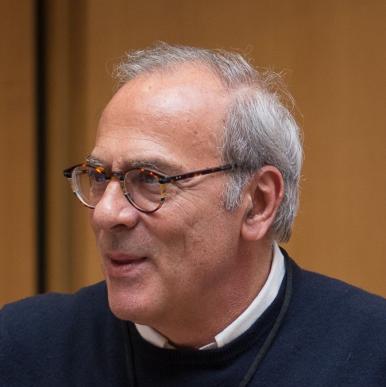
Degree in Medicine.
Specialty in Infectious Diseases and Internal Medicine.
Extensive experience on major pandemics, specifically on HIV/AIDS, Tuberculosis, Malaria and Neglected diseases.
Former President of the International AIDS Society [IAS]. Co-chair of the International Conference in Durban, South Africa, 2000.
Member of the Board of the Global Fund to Fight Tuberculosis, AIDS and Malaria, and Member of the Technical Revie Board (TRP): Chair of numerous WHO therapeutic guidelines for the prevention and treatment of HIV/AIDS.
Former director of the Department of Pharmacology of the Italian National Institute of
Health [ISS], and of the Italian National Center for Global Health.
Former President of the Italian Medicines Agency.
Scientific advisor of the Italian Ministry of Foreign Affairs, The Ministry of Finances and of the Ministry of Health, Currently Adjunct Professor of Global Health at the Catholic University of Rome, and member of the Program Committee of Horizon Europe ( Health Cluster - 2021-2027).
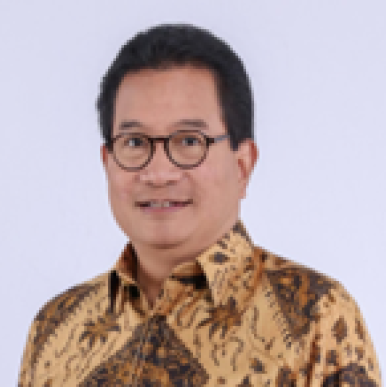
Prof. Wiku is an adept Indonesian government official specializing in pandemic management. While serving as a health policy professor at the Faculty of Public Health, Universitas Indonesia, he was appointed by the President as the spokesperson during the COVID-19 pandemic and led the expert panel within the Indonesian National Taskforce. He coordinated multi-sectoral policymaking during pandemic and economic recovery by developing over 40 regulations, including 21 specifically addressing health protocols and people mobility.
Utilizing a One Health approach, he facilitated pandemic prevention and mitigation efforts among government, media, community, and private stakeholders, effectively communicating vital information to over 270 million Indonesians. He led 187 press conferences on COVID-19 developments, vaccination campaigns, and related policy changes. Notably, he established a real-time, interoperable COVID-19 data system across 34 provinces and 516 cities and districts in Indonesia, essential for coordinated national response.
Following the near resolution of the COVID-19 crisis and the emergence of Foot and Mouth Disease (FMD) in livestock, the government appointed Prof. Wiku in the FMD National Task Force, where he coordinated the expert panel and developed effective cross-sectoral control policies. This effort culminated in the successful management of the G20 2022 event in Bali, safeguarding it from an FMD outbreak.
In 2021, he joined the One Health initiative and was appointed as one of 26 global experts on the One Health High-Level Expert Panel (OHHLEP), advising the WHO, WOAH, FAO, and UNEP on global One Health strategies.
Currently, his expertise in certified risk management (CRMP) and auditing (CACP), honed through his work in COVID-19 pandemic control, is utilized to oversight major government pharmaceutical holding companies, aiming at strengthening national health resilience and pandemic preparedness.
Dr. Garzón is an experienced professional in Public Health, appointed as Minister of Health from May 2021 to July 2022. She was member of the IVI Board of Trustees representing Ecuador in 2022. Currently, she is Dean of Public Health at Universidad San Francisco de Quito.
Dr. Garzón obtained her Medical Degree at Universidad Central del Ecuador, she holds PhD in Public Health with a concentration in Occupational Health, and a Post-doctorate in Occupational Health Research and Occupational Epidemiology, both from University of South Florida. Dr. Garzón has been professor for undergraduate and graduate programs in several Ecuadorian and U.S. Universities. Her research work focusses in Occupational Heat Stress, published in several indexed journals.
As Minister of Public Health, she was responsible of the design and implementation of the “Plan Fenix” a comprehensive response to the COVID-19 pandemic, and led the emblematic “9/100 Vaccination Plan” which reached 9 million fully vaccinated people (more than 50% of the population) before the 100th day of its implementation.
Dr. Garzón also lead the development of the “Plan Decenal de Salud del Ecuador”, a holistic, interdisciplinary and intersectoral plan designed to improve the public health of her country under the One Health Approach.
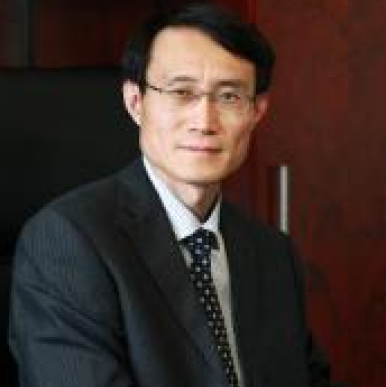
Dr Ming Xu is a Professor and PhD supervisor, Dean of the Department of Global Health, School of Public Health and Associate Dean of the Institute for Global Health and Development at Peking University. His research areas are mainly focused on international development cooperation and global public goods for health, and international financing for health. He has a PhD in industrial economics and completed his postdoctoral fellowship in corporate strategic management at Peking University Guanghua School of Management. He has written more than one hundred papers and articles in journals and specialized publications.
Previously, he was the Head of the Department for Emerging Economies and Senior Political Advisor for External Relations in the Global Fund to Fight AIDS, Tuberculosis and Malaria based in Geneva, Switzerland. Prior to that, he was the Vice President of China Chamber of Commerce for the Import and Export of Medicines and Health Products under the Ministry of Commerce of China. Earlier, he served in the United Nations Iraq-Kuwait Observation Mission and the Chinese Embassy in the Republic of Korea.
Dr Ming Xu has rich work experience in global health and the development of the healthcare industry. He has led many initiatives to accelerate access to essential medicines and medical products , including the local production of medicines in Africa and addressing the challenge of major infectious diseases in LMICs.

